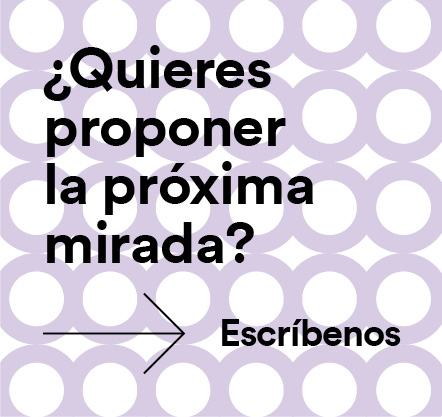See
On this occasion Cristina Febrer Nafría, 4th year student of Degree in Philosophy, Politics and Economics (PPE), generates a reflection on the value of truth in our lives inspired by the musical Tick Tick... Boom! by Lin-Manuel Miranda. Cristina opens the door to both Philosophy and Cinema. This essay was written for the subject of Philosophy of Language taught by Professor Jaime Nubiola at the School of Philosophy and Letters of the University of Navarra.
Tick Tick... Boom!, the truth and the best life
"All men by nature desire to know"[1]. So begins Aristotle's Metaphysics. And what is it that they desire to know? It seems to me that I am discovering nothing to anyone if I say that what people desire to know is the truth.
I have recently finished reading a article by Professor Jaime Nubiola. In it he briefly reviews the notion of pragmatism and what derives from it. And what does this have to do with the first sentence of the Metaphysics? Well, Professor Nubiola suggests some guidelines for knowing the truth. I will focus on two of his quotations, which were surely not written with the intention of provoking anyone to think carefully about them, but which have led me to think a few things.
 The first reads as follows: "truth is what we human beings give to one another in order to forge meaningful relationships among ourselves"[2]. I think it is important to reflect on the word "relationship". What drives us to relate to others? With many people we will be led by our own circumstances: partners at class or work, family, friends, etc. But when a relationship becomes stronger (I'm thinking of a true friendship, a courtship or even marriage) what we want is to get to know the other person. In a serious relationship we want to know about the other person, we want to know your truth.
The first reads as follows: "truth is what we human beings give to one another in order to forge meaningful relationships among ourselves"[2]. I think it is important to reflect on the word "relationship". What drives us to relate to others? With many people we will be led by our own circumstances: partners at class or work, family, friends, etc. But when a relationship becomes stronger (I'm thinking of a true friendship, a courtship or even marriage) what we want is to get to know the other person. In a serious relationship we want to know about the other person, we want to know your truth.
The opposite of truth is falsehood, lying. That's why I think we don't like it when they lie to us, when others "posture" and want to pretend something they are not. We like naturalness, simplicity. We like to know the truth, even if that sometimes entails discovering defects.
And what is the truth of a person? Honestly, I do not know. There have been so many approaches throughout the history of Philosophy... Professor Enrique Alarcón taught us that, in the human person, essence and subject are identified. That is to say: only I am I and only you are you. Perhaps this is where the truth of oneself begins: to discover that one is unique and that only one can play one's role. In the temple of Delphi it was said: "know thyself". One must know oneself, one must know one's own truth, in order to be able to give it to others and not lie to them.
This knowing one's own truth reminds me of what Rilke says to Franz Xaver Kappus. Letters to a young poet to Franz Xaver Kappus. Speaking of love he laments how young people give themselves to it before they are whole. They merge into each other being two halves that never form a whole one. What Rilke advises Kappus is to forge himself first as a world that can then submit the other. Linking it with what Jaime Nubiola says, to be a world is to find the truth (including one's own) in order to be able to give it to others.
The second quotation speaks of a scale of ways of thinking about things: there are better and worse ways of thinking. "Through contrast with experience and rational dialogue, human beings are able to recognize the superiority of one way of thinking over another"[3] says Nubiola. This reminded me of a article by Miguel Ángel Quintana Paz in which he said that there are better lives than others. He did not mean that one person has more dignity than another, but that certain types of life are more worth living than others. I believe that a consensus can also be reached on this point.
I can't resist adding to this essay the lyrics of a song from the musical Tick Tick... Boom! Michael doesn't see why Johnny holds so tight to the things that Johnny feels are true'[4]. At the time of listening to it I did not think of relating it to what Quintana Paz says, but I see that it talks about better and worse lives. Michael and Jonathan are two artist friends who take opposite paths: Michael, seeing that he does not succeed, decides to "sell out" and dedicate himself to marketing and advertising which Jonathan considers deceptive; Jonathan (Johnny) decides to remain a poor artist who obeys art and not capitalism.
 What I would like to emphasize is that Jonathan feels that what he does is the truth: living for art. He seeks his truth (he is an artist) and creates his world (he lives according to his vocation). His life seems better than his friend's, more authentic, for lives by what it believes.
What I would like to emphasize is that Jonathan feels that what he does is the truth: living for art. He seeks his truth (he is an artist) and creates his world (he lives according to his vocation). His life seems better than his friend's, more authentic, for lives by what it believes.
As we see, we all seek to know the truth and it is up to each one of us to discover our own truth in order to be able to offer it to others. The best life will be the authentic life, and there will be worse lives when they are lived falsely, against one's own vocation, against one's own truth.
[1] Aristotle, Metaphysics, 980a
[2] Nubiola, J. "Pragmatisms and relativism: C. S. Peirce and R. Rorty" in Unica. Revista de Arts and Humanities de la Universidad Católica Cecilio Acosta, II/3,2001, pp. 9-21.
[3] Ibid.
[4] Larson, J. Johnny Can't Decide. In "Tick, Tick... Boom!", RCA Victor, 1990.
If you liked the article, you might be interested in one of our Degrees!









